
Color, 1987, 116 mins. 10 secs.
Directed by Bill Forsyth
Starring Christine Lahti, Sara Walker, Andrea Burchill, Anne Pitoniak, Barbara Reese
Indicator (Blu-ray & DVD) (UK R0 HD/PAL) / WS (1.85:1) (16:9)

Color, 1987, 116 mins. 10 secs.
Directed by Bill Forsyth
Starring Christine Lahti, Sara Walker, Andrea Burchill, Anne Pitoniak, Barbara Reese
Indicator (Blu-ray & DVD) (UK R0 HD/PAL) / WS (1.85:1) (16:9)

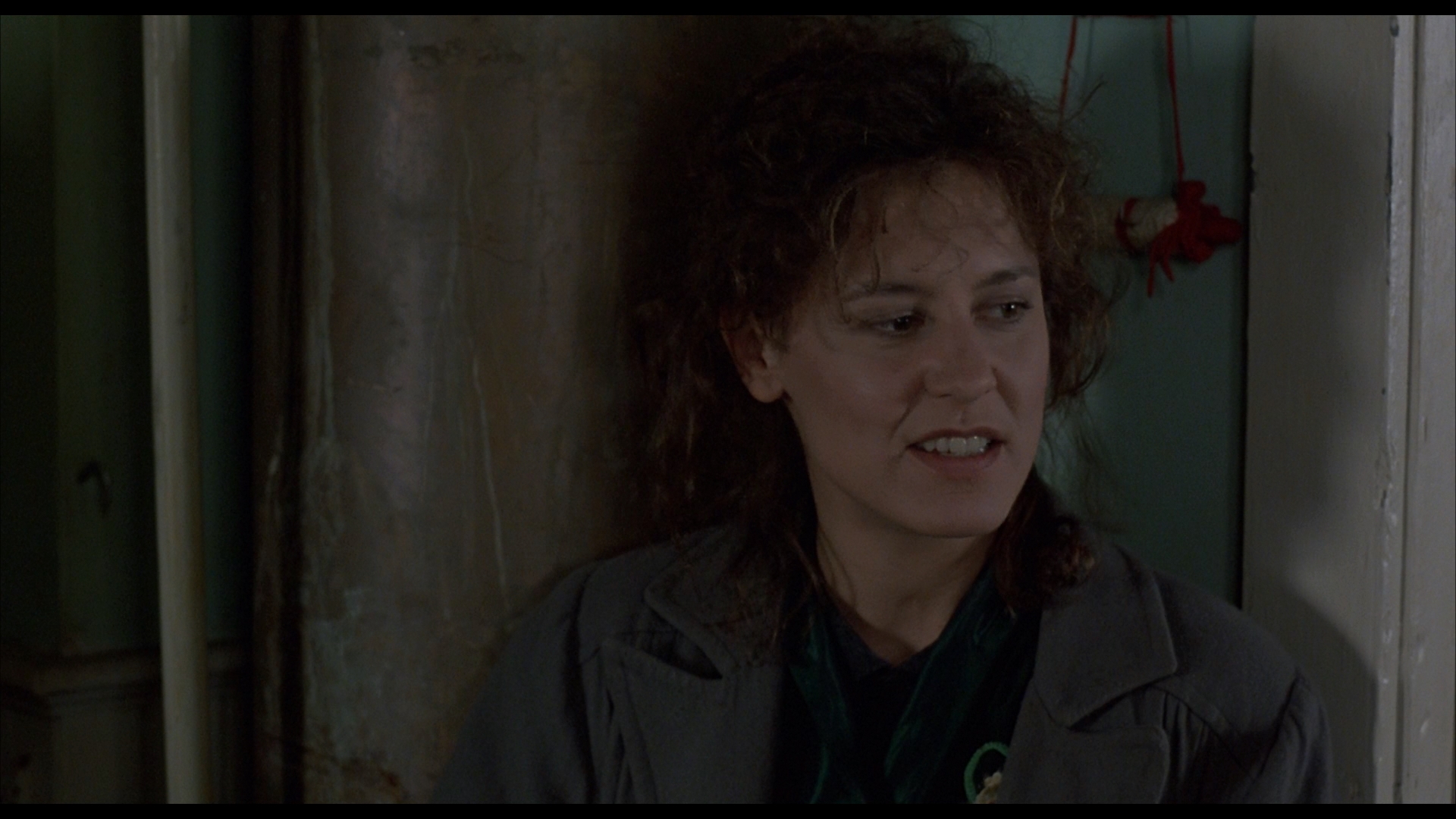 The frustratingly short and not exactly prolific career of Scottish filmmaker Bill Forsyth produced five genuine classics from 1979 through 1987, highlighted in the United States by the warm reception for his much-loved Local Hero. That period was capped off with Housekeeping, a British Columbia-shot delight set in the mid-‘50s that offers a memorable, female-centric change of pace compared to his previous films like Gregory’s Girl and That Sinking Feeling.
The frustratingly short and not exactly prolific career of Scottish filmmaker Bill Forsyth produced five genuine classics from 1979 through 1987, highlighted in the United States by the warm reception for his much-loved Local Hero. That period was capped off with Housekeeping, a British Columbia-shot delight set in the mid-‘50s that offers a memorable, female-centric change of pace compared to his previous films like Gregory’s Girl and That Sinking Feeling. 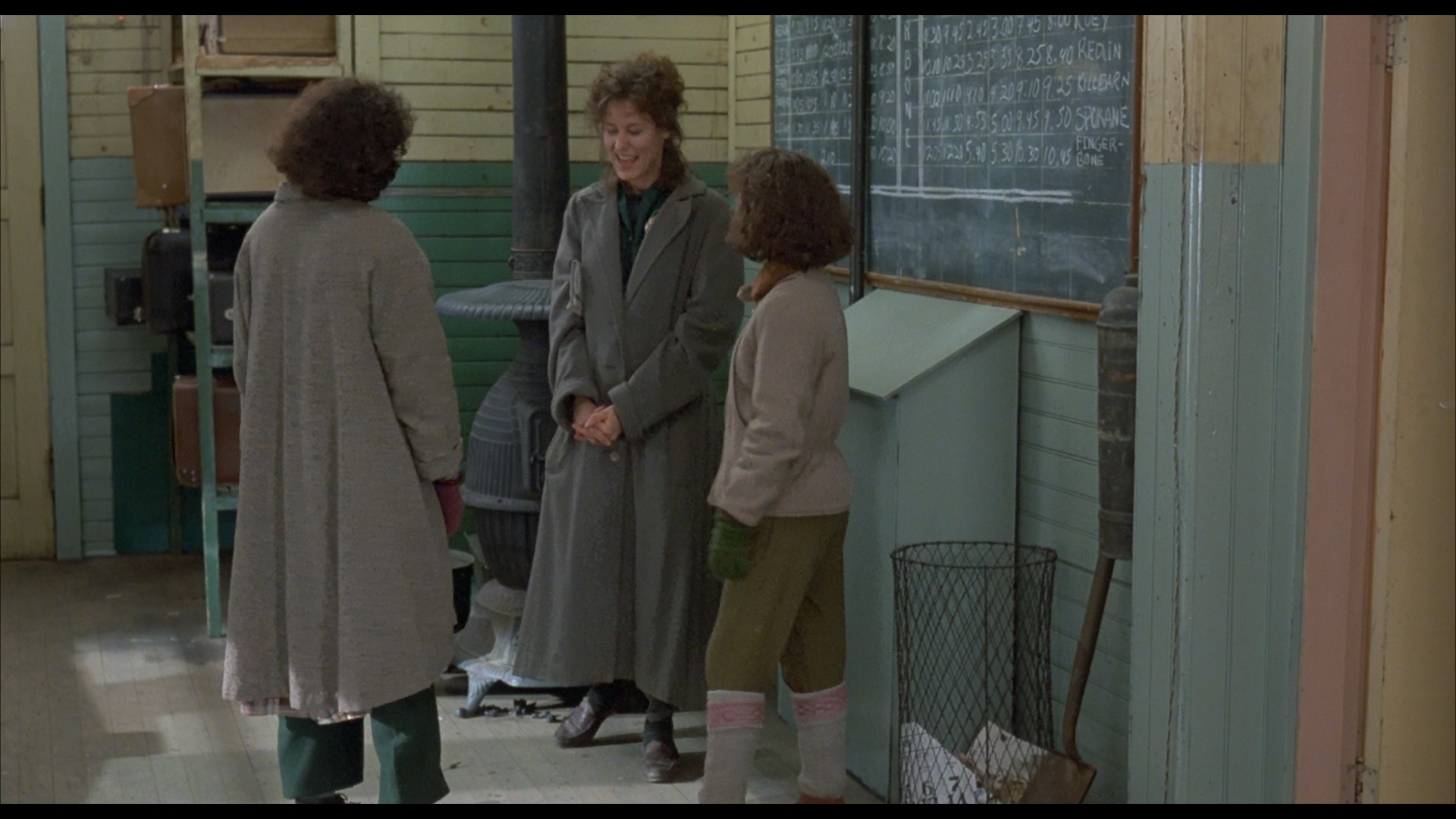 label-stripped tin cans and newspapers. Over time the girls themselves diverge over how to deal with Sylvie; is it better to accommodate and absorb her eccentricities or reject her for a more normal life?
label-stripped tin cans and newspapers. Over time the girls themselves diverge over how to deal with Sylvie; is it better to accommodate and absorb her eccentricities or reject her for a more normal life? 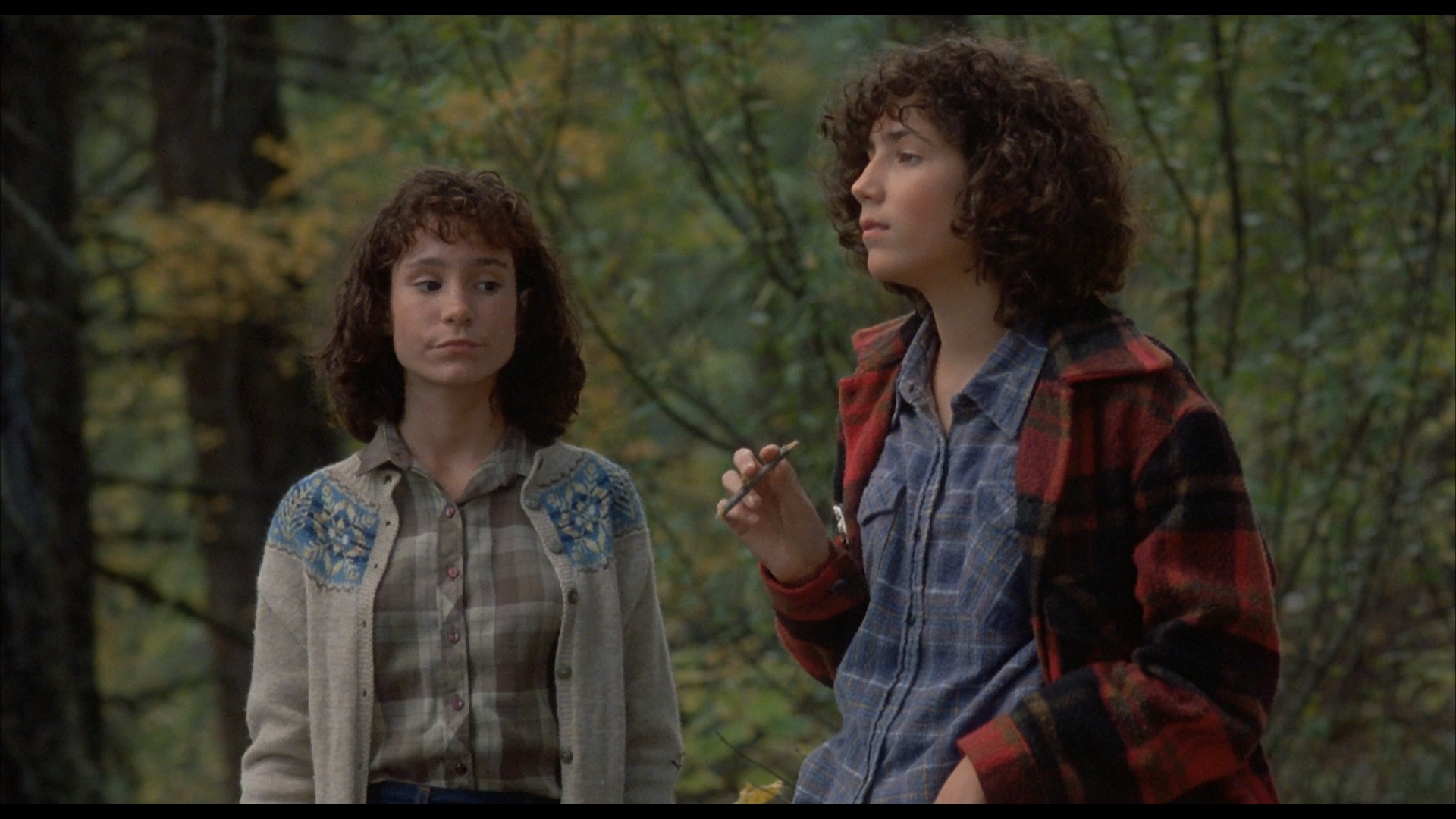 marked a significant shift for Forsyth as it found him on his first non-U.K. production and also adapting someone else's material, in this case an acclaimed novel by Marilynne Robinson that's followed very faithfully. It also features occasional narration to fill in some backstory (including a lovely Herzogian vignette about the girls' grandfather), used far more successfully here than what was later imposed on Forsyth's major studio swan song, Being Human. Here he's free to indulge in a sometimes magical atmosphere, with Lahti's rowing excursions providing some stunning visuals and giving the film a meditative feeling that extends well beyond the characters themselves. Some of it's even downright surreal, such as the three female leads going about their daily routine and even dancing in a house flooding up with water over their
marked a significant shift for Forsyth as it found him on his first non-U.K. production and also adapting someone else's material, in this case an acclaimed novel by Marilynne Robinson that's followed very faithfully. It also features occasional narration to fill in some backstory (including a lovely Herzogian vignette about the girls' grandfather), used far more successfully here than what was later imposed on Forsyth's major studio swan song, Being Human. Here he's free to indulge in a sometimes magical atmosphere, with Lahti's rowing excursions providing some stunning visuals and giving the film a meditative feeling that extends well beyond the characters themselves. Some of it's even downright surreal, such as the three female leads going about their daily routine and even dancing in a house flooding up with water over their 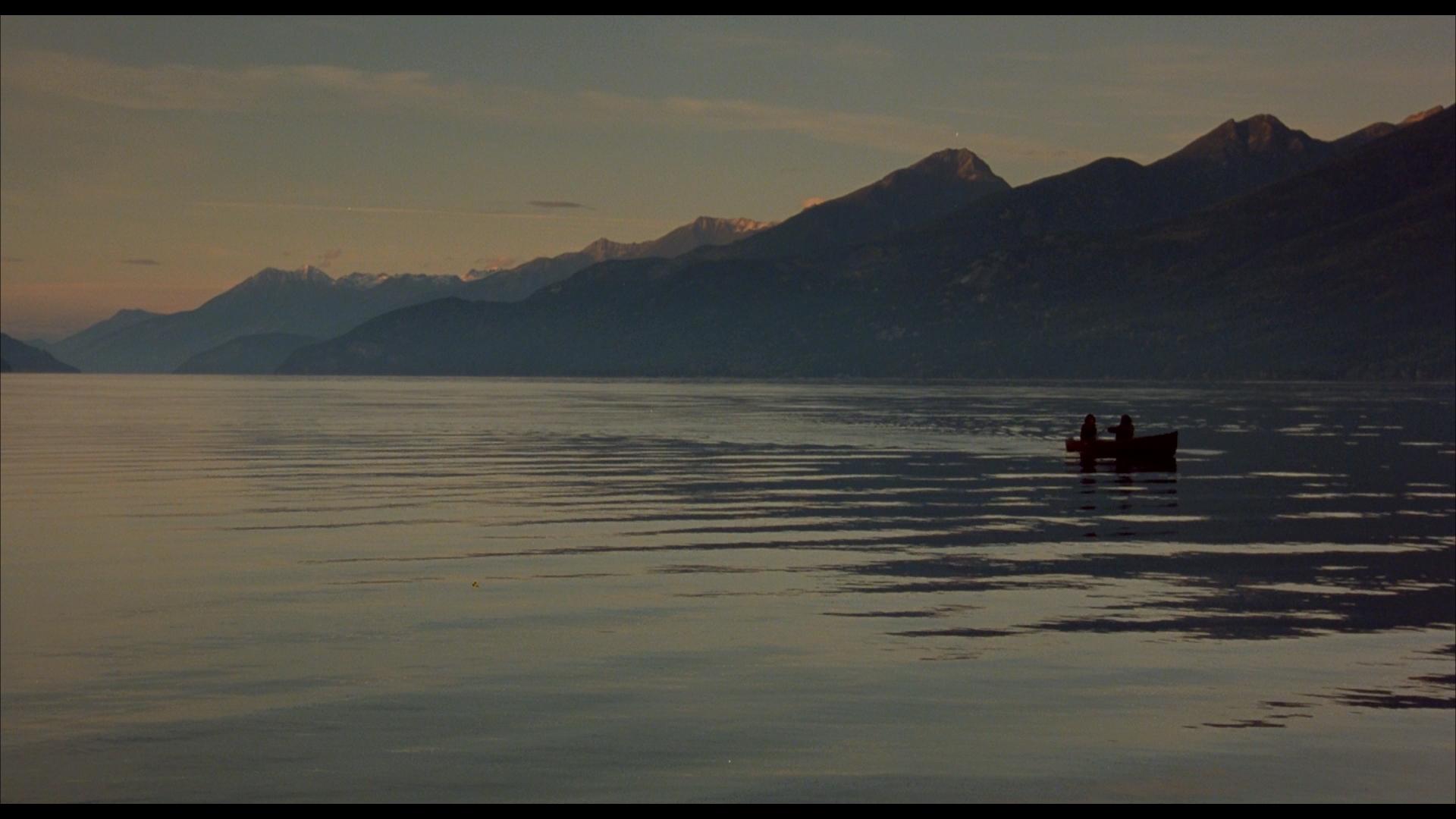 ankles.
ankles. 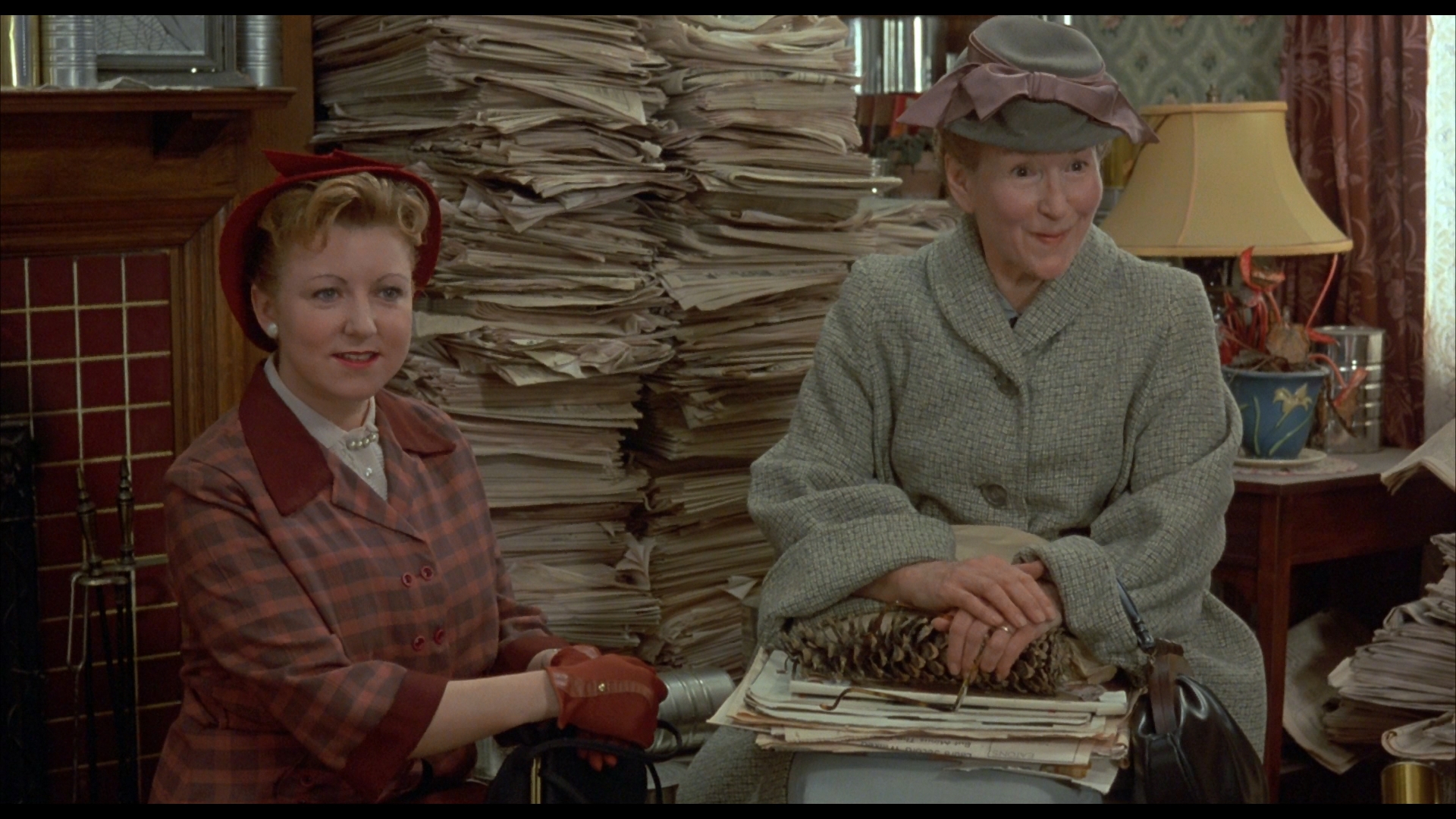 casting process, including striking gold with both of his amateur discoveries playing the young sisters. The novelist's perspective comes next with a Marilynne Robinson interview (13m36s), who explains how Forsyth approached her about making the "unfilmable" project (a term she thinks still applies as much as she admires the final result), and cinematographer Michael Coluter gets a chat (12m54s) about how he got into business working
casting process, including striking gold with both of his amateur discoveries playing the young sisters. The novelist's perspective comes next with a Marilynne Robinson interview (13m36s), who explains how Forsyth approached her about making the "unfilmable" project (a term she thinks still applies as much as she admires the final result), and cinematographer Michael Coluter gets a chat (12m54s) about how he got into business working 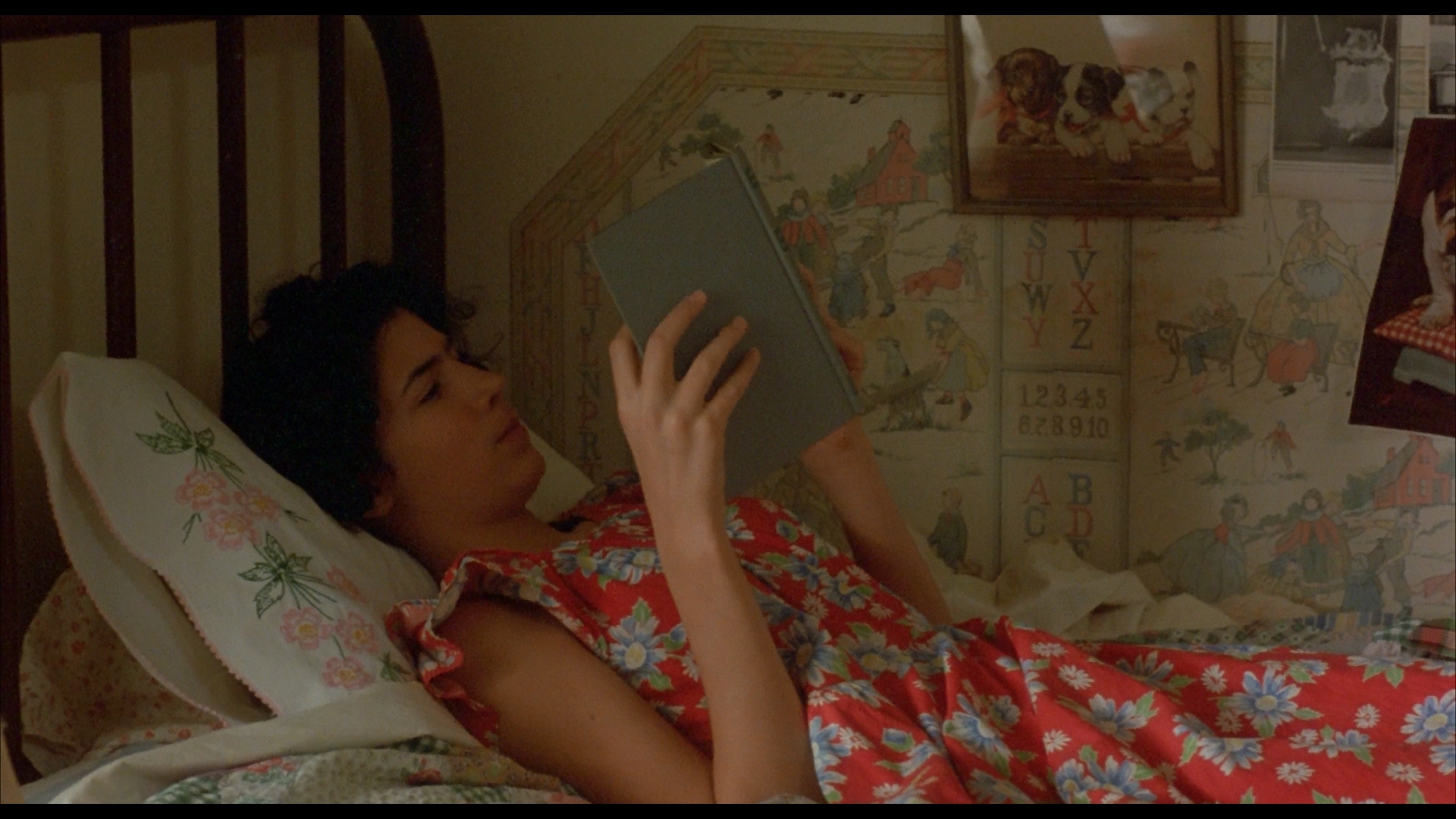 for himself as a camera assistant in the '70s and worked with Forsyth on several projects from documentaries through their more famous feature films, including working with Chris Menges on Local Hero. (Love how he says "a li'l zoom lens!"). Editor Michael Ellis (10m54s) recalls the shift in practice with working in the cutting room with Canadian assistants and building up a working relationship with Forsyth after Comfort and Joy, including what he perceived as the director's preference for post-production over actual shooting. Finally, an older 1994 audio interview with Forsyth at the BFI can be played as an alternate track for the main feature, reiterating some of the info from his video piece but expounding considerably on the writing process, the preliminary casting of Diane Keaton (which would've been a very different film), the brief leadership of producer David Puttnam at Columbia and how the film's comparatively low budget became an asset as he grappled with how to bring the novel's unique voice to life. The original trailer is also included, and in typical Indicator fashion, the liner notes booklet is a work of art itself
for himself as a camera assistant in the '70s and worked with Forsyth on several projects from documentaries through their more famous feature films, including working with Chris Menges on Local Hero. (Love how he says "a li'l zoom lens!"). Editor Michael Ellis (10m54s) recalls the shift in practice with working in the cutting room with Canadian assistants and building up a working relationship with Forsyth after Comfort and Joy, including what he perceived as the director's preference for post-production over actual shooting. Finally, an older 1994 audio interview with Forsyth at the BFI can be played as an alternate track for the main feature, reiterating some of the info from his video piece but expounding considerably on the writing process, the preliminary casting of Diane Keaton (which would've been a very different film), the brief leadership of producer David Puttnam at Columbia and how the film's comparatively low budget became an asset as he grappled with how to bring the novel's unique voice to life. The original trailer is also included, and in typical Indicator fashion, the liner notes booklet is a work of art itself
![]()